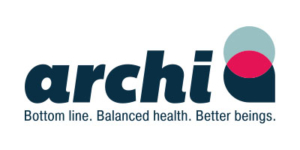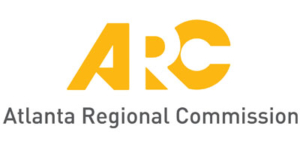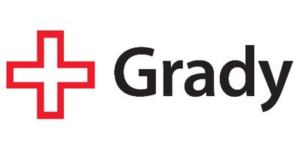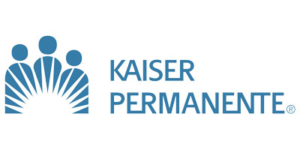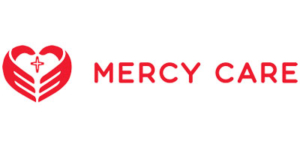WHAT IS DISEASE MANAGEMENT?
Disease management programs are structured treatment plans that aim to help people better manage their chronic disease, to improve their quality of life and lower healthcare spending. The complications of chronic diseases extend far beyond the walls of the doctor’s office or hospital and effective care and support must extend the underlying challenges of good nutrition, physical activity and medication management—all of which take place in the community and the home.
OUR GOALS & FOCUS
ARCHI partners have joined forces to focus on the needs of diabetic patients and address this gap between clinical services and community supports. This project represents a new way of thinking about disease management and is the first time that health systems have come together to jointly address the shared needs of their patients.
BACKGROUND
Diabetes is a pressing concern for health systems in Fulton and Dekalb Counties. Ten percent of adults aged 20 or older in DeKalb County and 9.2% in Fulton County have been diagnosed with diabetes. Among Medicare fee-for-service beneficiaries, that rate increases to 25.3% and 22.9%, respectively.
The total cost of treating diabetes in 2013 in Georgia was approximately $5.1 billion. Of that, $3.3 billion was attributed to direct medical costs; the remaining $1.8 billion was attributed to loss of productivity and sick days.
Across the 3 clinics participating in the pilot, there are approximately 3,000 individuals diagnosed as diabetic, with an A1c level > 7. This pilot seeks to increase access to DSME options for over 1,000 patients in participating clinics and medical facilities in Fulton and Dekalb County. All individuals aged 18 or older, regardless of insurance status, who have an A1c level > 7 and are being treated by Grady Health Systems, Well Star, or Mercy Care facilities in Fulton and DeKalb are eligible to participate in this collaborative effort.
OUR APPROACH
In addition to offering increased access to traditional DSME classes, the collaborative is partnering with Rimidi | Diabetes to offer an education platform that delivers self-paced DSME content via smartphone, tablet, or personal computer. All eligible patients will be offered this technology-based intervention.
Additionally, for patients that are classified as extremely high-risk (those with a documented A1c level > 9 and with either 2 diabetes-related emergency room visit or 1 inpatient hospital stay in the previous 6 months) will be offered additional telephonic coaching with a diabetes health coach. Telephonic coaching is being done in partnership with the Atlanta Regional Commission. This coaching will be offered to all eligible patients.
Next steps
In 2019 we will focus on:
Continuing to create a robust catalog of DSME in-person and online options
Patient recruitment, enrollment, and follow-up for patients from Grady’s Diabetes Clinic, WellStar’s Sheffield Clinic, and Mercy Care’s City of Refuge Clinic
Following up with patients in all DSME offerings to ensure that they are receiving their desired outcomes
Begin in data analysis and begin the process to develop an expanded project
AIM OF THE DIABETES COLLABORATIVE
The Atlanta Area Diabetes Collaborative is a joint effort between Grady Health System, St. Joseph’s Mercy Care, WellStar Health System, and Kaiser Permanente of Georgia to increase patient access to diabetes self-management education (DSME) and additional supports (coaching and referrals to supportive services). In addition to traditional in-person DSME classes, this pilot offers diabetic patients with hemoglobinA1c of more than 7 the opportunity to participate in online DSME courses that they can access by computer or smart phone. For patients with uncontrolled diabetes (hemoglobin A1c more than 9 and one hospital admission OR two emergency department visits), the collaborative is offering a 4-month intensive telephone-based coaching program that includes individual goal-setting, the identification of non-medical needs, and referrals to supportive services to meet those needs. Patients over 60 years of age are potentially eligible for assistive technology help, such as portion-control plates, pedometers, and talking glucometers. Extremely high-risk patients may trigger the need for an in-home visit and more intensive support.
TARGET POPULATION
All individuals aged 18 and older, regardless of insurance status, who have hemoglobin A1c levels of seven or more and are being treated in participating medical facilities are eligible to participate in this DSME collaborative effort.
The goal is to have 1,000 patients enrolled in the online DSME and 130 enrolled in the intensive telephone-based coaching.
PROGRESS TO DATE
The collaborative began enrolling in November 2018 at Grady Health System’s Diabetes Clinic. Mercy Care began enrolling in February of 2019 and WellStar began enrollment in April 2019.
To date, the collaborative has enrolled 237 patients in the online DSME and 50 patients in the telephone-based coaching.
EVALUATION
In order to measure the effectiveness of the intervention, evaluation measures will include:
Medical Outcomes:
-
- Patient reported clinical outcomes (weight, lower hemoglobin A1c)
Process Outcomes:
-
- Patient experience and satisfaction (via in-depth interviews, satisfaction surveys, and patient comments)
- Enrollment and retention numbers
- Stratification of patient engagement by age, education, gender, and device usage (online DSME only)
- Knowledge acquisition
- Description of partnerships formed
Non-medical Outcomes:
-
- Summary of social support services and non-medical needs identified through the telephonic coaching


